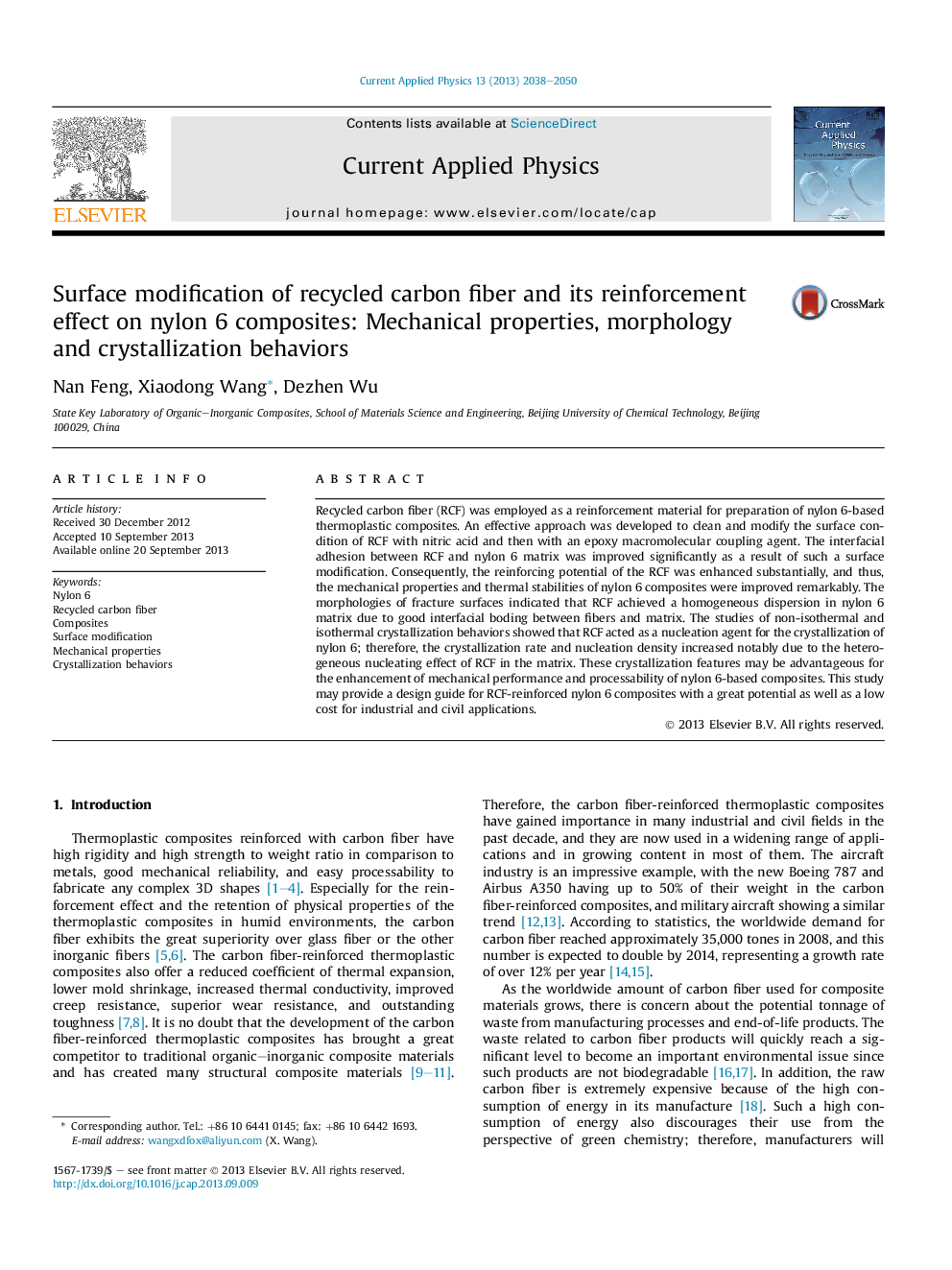| Article ID | Journal | Published Year | Pages | File Type |
|---|---|---|---|---|
| 1787517 | Current Applied Physics | 2013 | 13 Pages |
Abstract
Recycled carbon fiber (RCF) was employed as a reinforcement material for preparation of nylon 6-based thermoplastic composites. An effective approach was developed to clean and modify the surface condition of RCF with nitric acid and then with an epoxy macromolecular coupling agent. The interfacial adhesion between RCF and nylon 6 matrix was improved significantly as a result of such a surface modification. Consequently, the reinforcing potential of the RCF was enhanced substantially, and thus, the mechanical properties and thermal stabilities of nylon 6 composites were improved remarkably. The morphologies of fracture surfaces indicated that RCF achieved a homogeneous dispersion in nylon 6 matrix due to good interfacial boding between fibers and matrix. The studies of non-isothermal and isothermal crystallization behaviors showed that RCF acted as a nucleation agent for the crystallization of nylon 6; therefore, the crystallization rate and nucleation density increased notably due to the heterogeneous nucleating effect of RCF in the matrix. These crystallization features may be advantageous for the enhancement of mechanical performance and processability of nylon 6-based composites. This study may provide a design guide for RCF-reinforced nylon 6 composites with a great potential as well as a low cost for industrial and civil applications.
Related Topics
Physical Sciences and Engineering
Physics and Astronomy
Condensed Matter Physics
Authors
Nan Feng, Xiaodong Wang, Dezhen Wu,
